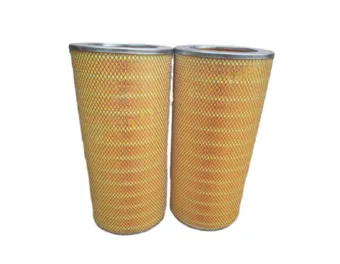 Tel:
+8615930870079
Tel:
+8615930870079
Dec . 31, 2024 13:21 Back to list
gas turbine air intake filter
Gas Turbine Air Intake Filters Ensuring Efficiency and Longevity
Gas turbines are a crucial component of modern energy generation, widely used in power plants, aviation, and various industrial applications. They operate by converting fuel into mechanical energy through a series of processes that rely heavily on the quality of the air entering the system. As such, the air intake filter plays a fundamental role in ensuring the optimal performance and longevity of gas turbines. This article will explore the importance of air intake filters, their design considerations, and maintenance practices essential for enhancing turbine efficiency.
The Importance of Air Quality
The primary function of an air intake filter is to prevent contaminants such as dust, dirt, and moisture from entering the gas turbine. These pollutants can cause severe damage to turbine components, leading to increased wear and tear, reduced efficiency, and eventually, costly downtime for repairs. A well-designed air intake filter not only protects the turbine but also improves its overall performance by ensuring that only clean, dry air enters the combustion chamber.
Dust and particulate matter can significantly impact the combustion efficiency of gas turbines. If the air intake is polluted, it can lead to incomplete combustion, which reduces the energy output and increases emissions. In addition, fuel efficiency may decline because the system operates less effectively under suboptimal conditions. By using high-quality air intake filters, operators can ensure that their turbines run efficiently, thereby saving on fuel costs and minimizing environmental impact.
Design Considerations
When selecting an air intake filter for a gas turbine, several design considerations must be taken into account. These include
1. Filtration Efficiency The filter's ability to remove particles of different sizes is critical. Filters should be designed to capture both large and small particulates without impeding airflow significantly.
2. Pressure Drop The filter should provide low resistance to airflow to maintain the optimal pressure within the turbine. A high-pressure drop can lead to decreased engine performance and increased fuel consumption.
3. Durability and Material Selection Filters must be constructed from materials that can withstand high temperatures and corrosive environments typical of gas turbine operations. Durability is essential to ensure a long service life and consistent performance.
4. Maintenance and Replacement The design should facilitate easy maintenance and replacement. Filters that can be cleaned and reused tend to be more economical in the long run.
gas turbine air intake filter

5. Environmental Considerations Filters should comply with regulatory standards concerning the disposal and environmental impact of filter materials.
Maintenance Practices
Regular maintenance of air intake filters is critical for ensuring the reliability and efficiency of gas turbines. Here are some best practices
1. Routine Inspections Conduct regular inspections of the air intake system to identify any clogging or damage to the filters. Early detection of issues can prevent larger problems down the line.
2. Cleaning and Replacement Depending on operational conditions, filters may need to be cleaned or replaced periodically. Keeping a maintenance schedule aligned with operational usage can optimize filter performance.
3. Monitoring Performance Use pressure gauges to monitor the pressure drop across the filter. Unusual increases in pressure drop can indicate that the filter is clogged and needs attention.
4. Feedback Loop Implement a feedback system to track the performance metrics of the gas turbine and correlate them with the condition of the air intake filters. This data can guide maintenance decisions.
5. Training Personnel Ensure that staff are well trained in the proper handling, installation, and maintenance of air intake filters to avoid any inadvertent damage to the filters or the turbine itself.
Conclusion
In summary, the air intake filter is a critical component of gas turbine performance. By ensuring the quality of the air entering the system, these filters help maintain efficiency, reduce emissions, and prolong the life of the turbine. Operators must invest in high-quality filtration solutions, prioritize regular maintenance, and be proactive in monitoring filter performance. By doing so, they can harness the full potential of gas turbine technology, paving the way for a more sustainable and efficient energy future.
-
Types and Applications of Air Filtration CartridgesNewsJul.28,2025
-
The Role of Gas Turbine FiltersNewsJul.28,2025
-
Mastering Air Filter Cartridge UseNewsJul.28,2025
-
Advanced Turbine Filters for Modern Gas TurbinesNewsJul.28,2025
-
Cellulose Air Filter Cartridge Advantages in Dust FiltrationNewsJul.28,2025
-
Cellulose Filters for Air Particle ReductionNewsJul.28,2025

 Email:
Email:





